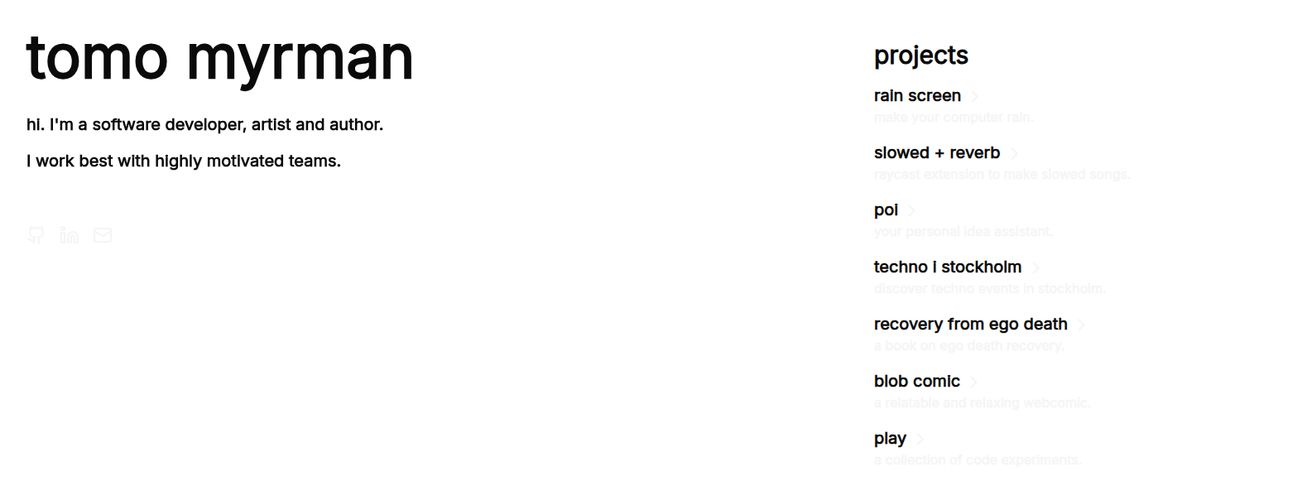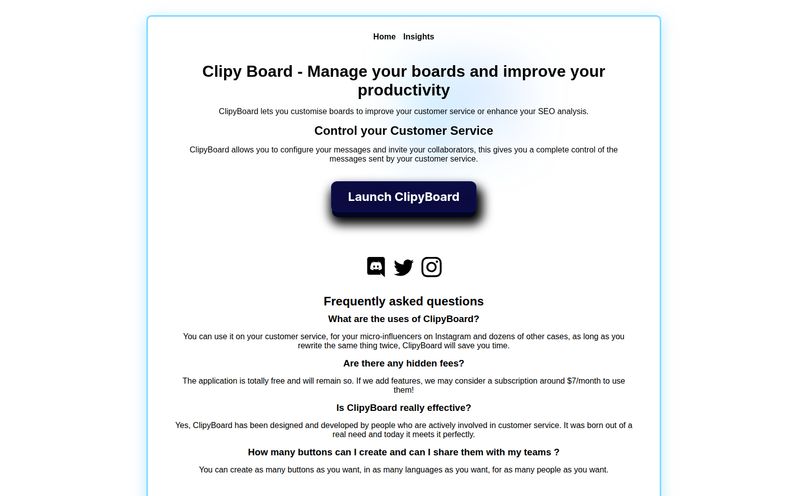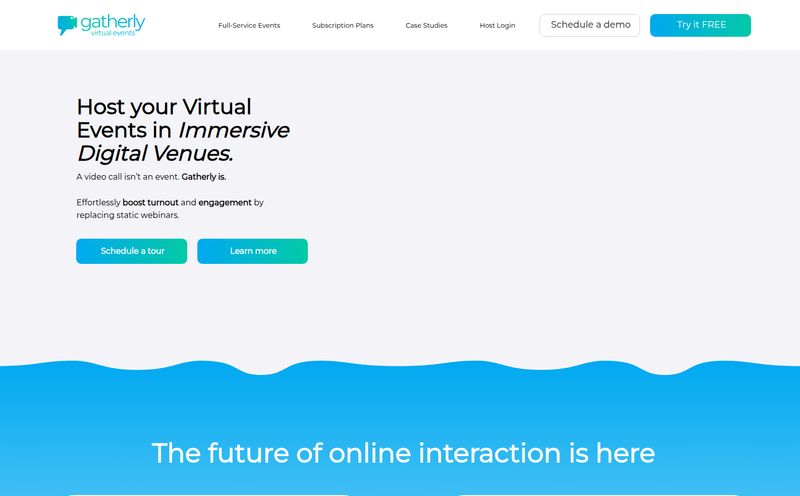If you've spent any time in the marketing or business operations world, you know the feeling. That dreaded moment when you need a specific piece of data, a tiny insight buried deep within rows and rows of a spreadsheet. You know it's there. But getting it out is another story. It usually involves a ticket, a plea to the data team, and a multi-day wait for a simple query. It’s a bottleneck as old as business intelligence itself.
So, when I first heard whispers about a tool called Latentspace, my ears perked up. The promise was exactly what so many of us have been dreaming of: a way to just… ask your data questions. In plain English. No SQL, no complex formulas, no waiting for someone else. Just instant answers.
It sounded like the holy grail for people who are data-curious but not data-scientists. A tool that could turn any spreadsheet into a conversational partner. But as with many things in the fast-paced tech world, the story took an unexpected turn.
The Big Promise: A No-SQL Future for Everyone
Let's be real for a second. The gap between wanting data and getting it is often a chasm. Most business professionals, from marketers tracking campaign ROI to product managers analyzing user behavior, don't write SQL. I can hack my way through some basic queries if I have to, but fluent? Not a chance. And I know I'm not alone.
This is the exact pain point Latentspace was designed to solve. The whole idea was to democratize data analysis. Instead of learning a new coding language, you could just talk to your data. This isn't just about convenience; it's about agility. Imagine being able to ask "What were our top 5 selling products in the Midwest last quarter?" and getting an answer instantly, instead of in three days. That's a huge competitive advantage.
This approach significantly lowers the barrier to entry. It means smaller teams without a dedicated analyst can still make data-driven decisions. It frees up the actual data scientists to work on the really knotty, complex problems instead of running routine reports. In theory, everybody wins.
Meet 'Steve', Your Supposed Data Assistant
The core of Latentspace was reportedly an AI named 'Steve'. I've always found it amusing when companies give their AIs human names. It feels a bit… 2001: A Space Odyssey, but it also makes the tech feel more approachable. Steve was meant to be your on-call data assistant, living inside your spreadsheets.
The concept is brilliant. It’s like having a junior data analyst at your beck and call, 24/7, who never gets tired and never complains about your last-minute requests. Need a quick chart for a presentation? Ask Steve. Curious about a sudden spike in traffic? Ask Steve. This is the kind of spreadsheet automation that goes beyond simple macros and into genuine intelligence.

Visit Latentspace
But Then… The Digital Tumbleweed
So, I'm all geared up. I’m ready to see Steve in action. I go to check out the Latentspace website and… nothing. Just a cold, sterile “Site Not Found” page. A digital dead end. I tried again. Cleared my cache. Nothing.
This is a uniquely modern kind of frustration, isn't it? You get hyped for a new tool that promises to solve a real, nagging problem, and then it just… isn't there. It’s like a ghost ship. The stories and whispers are out there on the web, but the vessel itself has vanished from the port.
What does this mean? In the startup world, it could be anything. They could have been quietly acquired by a larger company (an 'acqui-hire'). They could have run out of funding and shut down. Maybe they're in the middle of a major pivot and have taken the site down temporarily. Without any official announcement, it's all just speculation. It’s a stark reminder of how volatile the tech scene can be. One minute you're the next big thing, the next you're a 404 error.
The Bigger Picture for AI Data Tools
The (temporary?) disappearance of Latentspace doesn't mean the dream is dead. Far from it. This is one of the hottest areas in AI right now. The demand for user-friendly business intelligence tools is massive, and plenty of other companies are jumping in to fill the void.
Tools like Julius AI, for example, are treading a similar path, allowing you to connect data sources and analyze them through conversational prompts. I've been playing around with it, and it's pretty impressive. It shows that the core concept behind Latentspace is not only viable but is actively being developed by others. It's a bit like the early days of search engines—everyone knew search was the future, but it took a while for the clear winners to emerge.
I think what we're seeing is a fundamental shift. For years, the answer to data problems was "learn to code" or "hire someone who can." Now, the answer is increasingly, "let the AI handle it." And that's exciting.
What We Actually Know About Latentspace
Sifting through the digital breadcrumbs, here's what we can piece together about this intriguing tool.
The main advantages were clear: you could get faster insights from your spreadsheets, you didn't need to know SQL, and you could reduce your reliance on overburdened data teams. Those are three massive wins. On the flip side, the cons are now glaringly obvious: the website is unavailable and there was always very limited public information about its specific features or how the underlying technology worked.
And what about the price? That remains a complete mystery. There was no public pricing page, which often suggests a tool is in a beta phase or targeting enterprise clients with custom quotes. We may never know what the sticker price for Steve's help would have been.
The Verdict on a Ghost Ship
So, what’s the final word on Latentspace? It's a great idea, a perfect encapsulation of where the industry is heading. It’s a shame the platform seems to have hit a major snag before it ever really got going. I'm holding out a sliver of hope that it’s just a temporary issue, a relaunch in the works. But realistically, it serves as a cautionary tale.
For now, it’s a ghost. A promising concept that vanished into the digital ether. But its spirit lives on in the wave of new AI data assistants that are successfully making it to market. The desire to talk to our data is real, and someone is going to crack this nut wide open. Maybe it won't be Latentspace, but they definately had the right idea.
Frequently Asked Questions
- What was Latentspace supposed to do?
- Latentspace was designed as an AI data assistant, nicknamed 'Steve', that allowed users to ask questions about their spreadsheet data in plain English. The goal was to get quick insights without needing to write SQL queries or wait for a data team.
- Do I need to know SQL for these new AI data tools?
- No, and that's the main appeal! Tools in this category, including the concept for Latentspace, are built specifically for non-technical users. They translate your natural language questions into the queries needed to find the answer in your data.
- Why can't I access the Latentspace website?
- Currently, the Latentspace website displays a "Site Not Found" error. The exact reason is unknown, as there has been no public announcement. It could be a temporary technical issue, a company pivot, a shutdown, or an acquisition.
- Are there good alternatives to Latentspace?
- Yes. The field of AI data analysis is growing rapidly. Tools like Julius AI, Tableau with its 'Ask Data' feature, and even Microsoft Excel's own AI features are providing similar functionalities for conversational data analysis.
- What is an AI data assistant?
- An AI data assistant is a tool that uses artificial intelligence, particularly natural language processing (NLP), to help users interact with, analyze, and visualize data. Instead of using code or complex menus, you can simply type or speak your request.
- How much did Latentspace cost?
- The pricing for Latentspace was never made public. It's possible it was in an early beta stage or was being sold on a custom enterprise model. At this point, the cost is unknown.
A Final Thought
The story of Latentspace is a classic tech tale. A brilliant idea, a clear market need, and an uncertain fate. While we may not be able to use this specific tool today, its vision points directly to the future of business intelligence. A future where data is more of a conversation and less of a chore. And that's a future I'm still excited about.
Reference and Sources
- Julius AI - An alternative AI data analysis tool.



